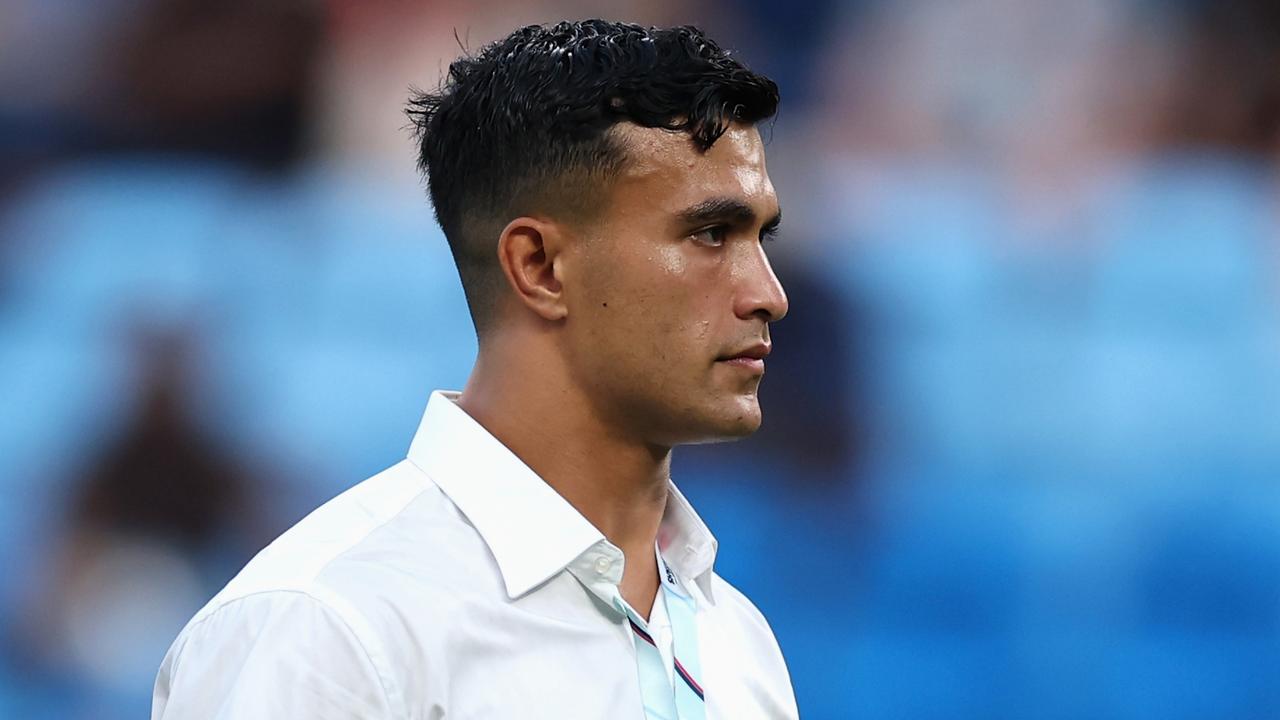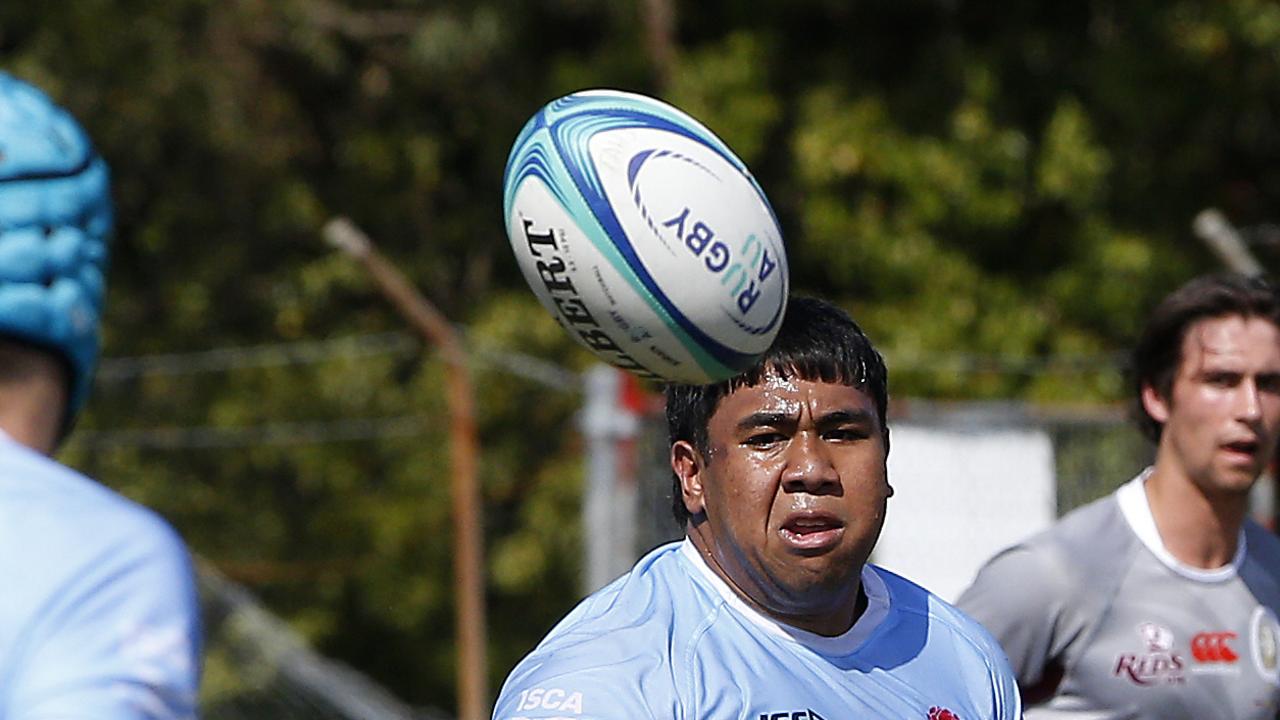World Rugby’s potential new boss Brett Robinson urges north and south to finalise Nations Championship to secure game’s future
‘This is what fans want, they’re looking for matches that have meaning.’ World Rugby’s potential new boss weighs in on plagued global tournament, JAMIE PANDARAM reports.
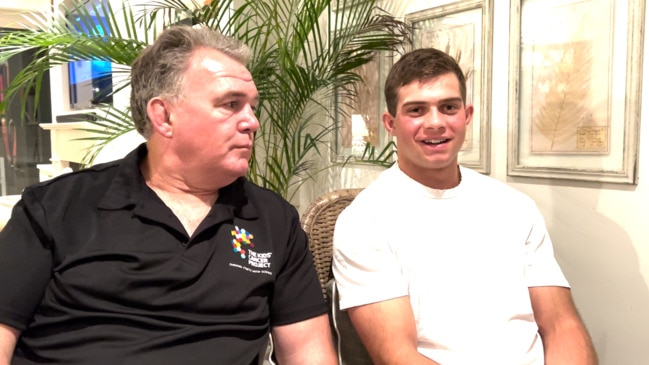
Rugby
Don't miss out on the headlines from Rugby. Followed categories will be added to My News.
THE man who could become rugby’s most powerful figure has strongly urged the game’s executives to put aside differences and finalise a deal for the Nations Championship.
Australian Dr Brett Robinson has nominated for the World Rugby chair position to be voted in November, to succeed Bill Beaumont. Robinson will reportedly take on World Rugby vice-chairman John Jeffrey, from Scotland, for the role.
He was one of the key drivers for the proposed Nations Championship, to be contested between the Six Nations and SANZAAR teams, with another two teams – likely Japan and Fiji – added to the southern hemisphere tournament in a mini World Cup style competition every two years.
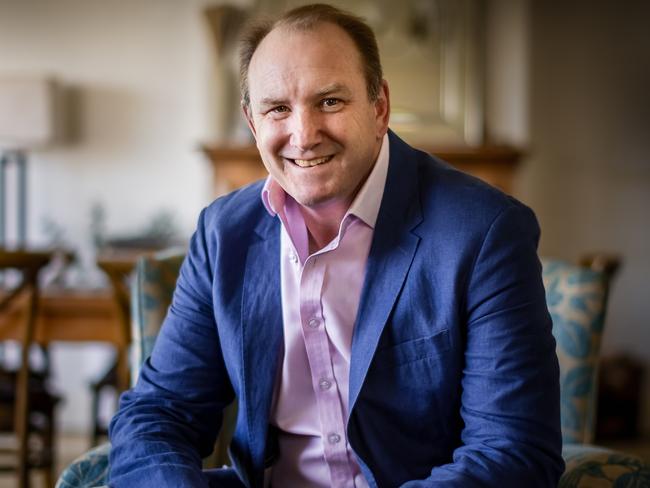
But the proposed 12-team tournament – with a second tier tournament involving another 12 teams – has been plagued by hurdles, indecision and inaction that threatens to scupper a potentially game-changing event for rugby’s overall finances, in much the same way the euros and Copa America deliver billions to football in between World Cups.
“My only counsel to the Six Nations and SANZAAR nations is this; Please don’t miss this opportunity again, and please elevate yourself for the good of the game,” Robinson told this masthead.
“Because if we focus purely on our self-interest, you’re ultimately undermining yourself and the game.
“We know from the many years of research that this is what fans want, they’re looking for matches that have meaning, there is a product there that enables jeopardy and that teams that are successful, on merit, can elevate themselves when promotion-relegation comes in from 2030.
“We’re worried about the economics of the game, this is a no-brainer to build long-term growth for the unions, let’s just get it done so we can get moving.”
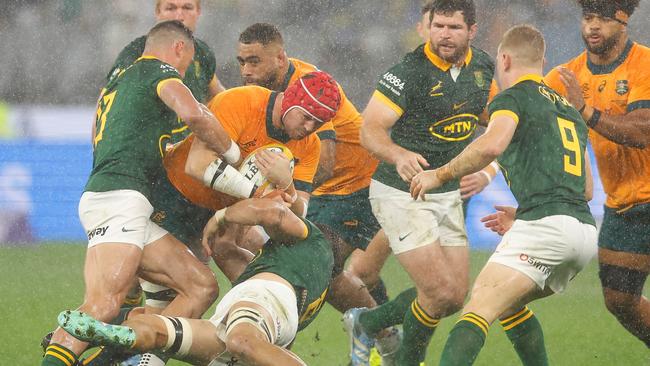
The unions earlier this year rejected a proposal by Qatar to host the first eight tournaments for a remarkable £800 million ($1.55 billion).
It’s understood France and Ireland voted against the proposal due to ethical concerns around Qatar’s human rights record.
Robinson said the continued uncertainty is costing the game.
“You’ve got to get going, my experience in life with business is that if it’s 70 to 80 per cent there, get going,” Robinson said.
“Once you get going, you find a way to smooth issues out, and you can learn and grow.
“But it’s baulking and stalling and not doing something where you often destroy value, my advice is, guys you just need to get moving because the long-term value will come.”
Complicating the matter is a recent agreement between New Zealand and South Africa to host inbound tours every four years starting in 2026.
The backroom deal was done without the knowledge of SANZAAR partners Australia and Argentina, and includes games against provincial teams as well as four Test matches between the All Blacks and Springboks that puts a question mark around The Rugby Championship.
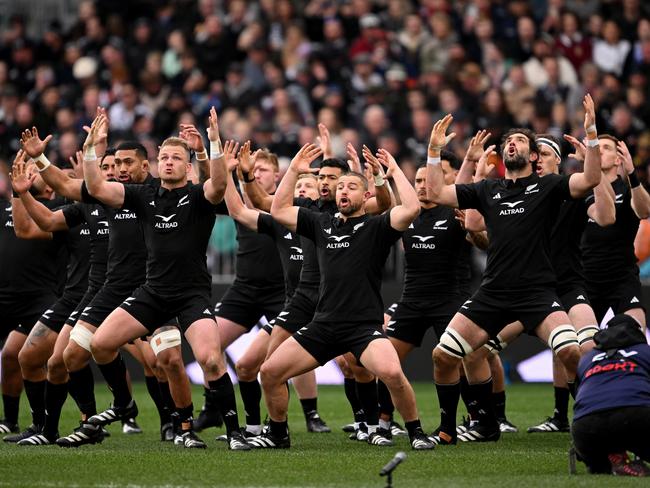
However, Robinson said NZR and SARU had given assurances that these games would be played outside the Nations Championship windows.
“Currently the SANZAAR and Six Nations unions are working through what the tier one structure and commercial look like, but ultimately we at World Rugby are responsible for the second tier, so the next 12 teams,” Robinson said.
“What we’re then wanting to do is come together and look to negotiate a consolidated product, leverage off the commercials from each.
“We’re wanting the Six Nations and SANZAAR nations to finalise the commercial arrangements themselves, and the distribution between themselves, for that part of the tournament.
“Clearly, the value in this is the integration into the second tier, and the jeopardy that comes with that and the annual finals series at the end of the year that enables that and really builds this in the long term.”
Robinson also addressed other key issues facing rugby.
CLUB VS COUNTRY
Europeans clubs, particularly in France, are paying enormous salaries for talent, but often pressure those players not to play international games for fear of injury. That lessens the value of many Test teams, particularly from tier two nations, thus devaluing the game as a whole.
“We’ve got Reg 9 (World Rugby’s regulation nine rule that states clubs must release players during international windows), but UEFA and football have been using it for years and compensation for the development or transferring of players,” Robinson said.
“We do have those regulations, we’ve just never been aggressive in enforcing them.
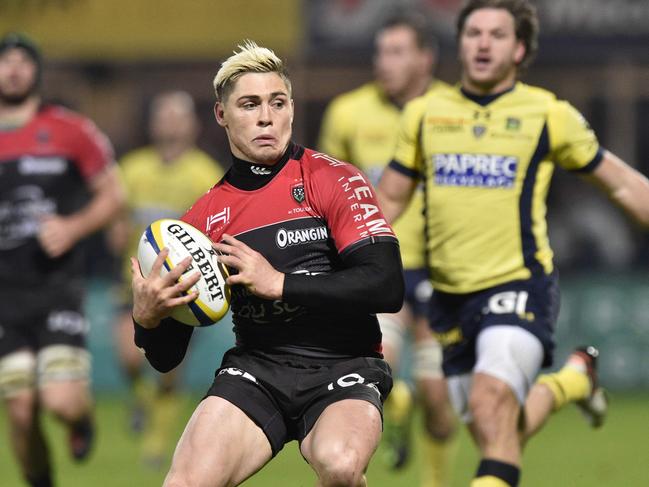
“And is there a collective sense that we need to be more overt and purposeful about managing some of those levers to protect the international game and the member unions from not falling over a financial cliff? Because the costs are going to keep rising and the revenues are not at the same pace.
“That’s really critical for us to be thinking about.”
RUGBY’S FINANCIAL CHALLENGES
Robinson, who has sat on the World Rugby board for the past eight years, will be involved in crisis meetings in September with the game’s powerbrokers to discuss plummeting cash flow across the landscape.
“The member unions are finding it very difficult, outside of us, unions in the north are finding it challenging so they acknowledge there is a need to do something about it,” Robinson said.
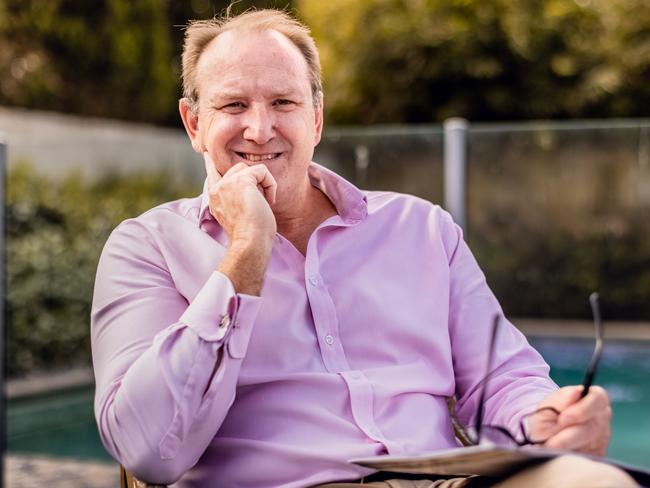
“They understand it’s not impacting others around the world, but it’s also impacting on them.
“So the meetings we’re having, firstly with the unions, then obviously we need to extend that out to the club owners – because we all need a sustainable system – ultimately it’s pretty simple, if we have revenues that aren’t actual, they’re underpinned by discretionary expenditure or philanthropy, is not going to sustain us because that can come and go.
“It’s about the sustained revenues that the game can actually support through the product that we have to work to.
“If we just keep squeezing, someone will win in the short term, but like any system you get bitten in the end.”
ENGAGING YOUNGER AUDIENCES
One of the big frustrations for rugby fans, and those who could potentially engage with the game in future, is the varying rules of an already complex sport.
The Rugby Championship features law variations designed to speed the game up, including shot clocks for penalty kicks and scrum re-sets, and 20-minute red cards, but these are not part of Six Nations games or between north and south teams.
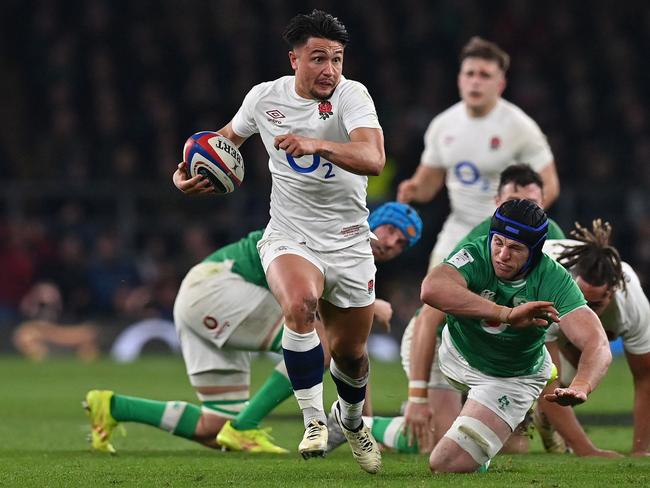
“[RFU boss] Bill Sweeney said to me that the existential threat we face is becoming irrelevant to the next generation of rugby fans and players, and he is so right,” Robinson said.
“There is sincerely an alignment around the issues at the moment which is fantastic, we can move collectively faster.
“We’ve got to be uniform, we clearly can’t have different types of the game being played in different competitions.
AUSTRALIAN RUGBY
As the inaugural captain of the Brumbies, a 16-Test Wallaby and former Australian rugby board member, Robinson is well aware of the challenges here.
Pressure from the NRL and AFL, bungling management of the game, and increased competition for eyeballs has put rugby in a perilous position in Australia.
But Robinson remains positive.
“I’m a glass half-full kind of guy,” he said.
But while some have viewed Robinson’s nomination as a potentially saving grace for Rugby Australia, his remit will only be to make decisions for the good of the entire game, not his home nation.
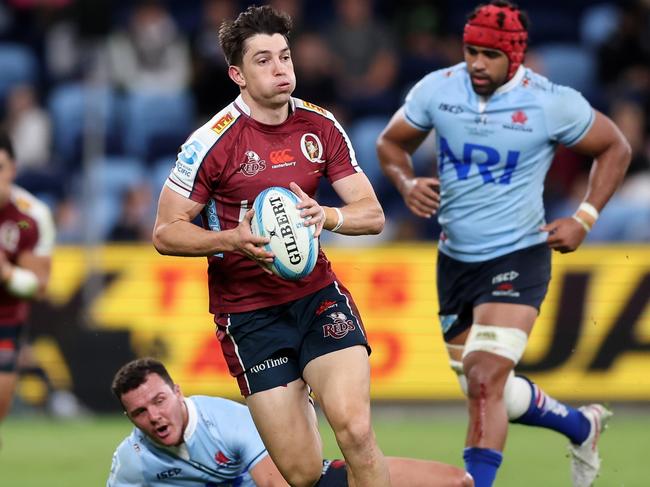
Robinson decided to throw his hat in the ring for the World Rugby chairman job after discussing it with wife Amelia. Their four children, Sarah, Eloise, Tom and Will have all now finished high school.
Robinson’s nephews Declan and Simon Day will play in the second grade Hospitals Cup grand final on Saturday in Brisbane
“I’ve got boys that love the sport, Tom’s an 18-year-old playing Colts 1, Will’s just turned 21 playing in a second grade grand final with his younger brother coming up through the grade to play with him,” Robinson said.
“As you see in Sydney, the health of the community game is really thriving. But we’ve got work to do on our competition models, at a high performance level.
“To be fair, that’s not an issue we’re alone with. If you look around the world, in the Celtic nations with the URC, in the [English] Premiership, in New Zealand, South America, Africa, the provincial competitions of many nations are under real pressure.
“Some of the challenges we face here, while they’re elevated in comparison to our competitors, if you talk to the member unions – which I have – they are suffering similar challenges.
“The challenges the game needs to address as a whole is provide financial macroeconomic drivers around revenue generation, while also managing the cost base.”
More Coverage
Originally published as World Rugby’s potential new boss Brett Robinson urges north and south to finalise Nations Championship to secure game’s future




